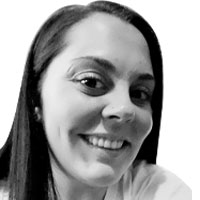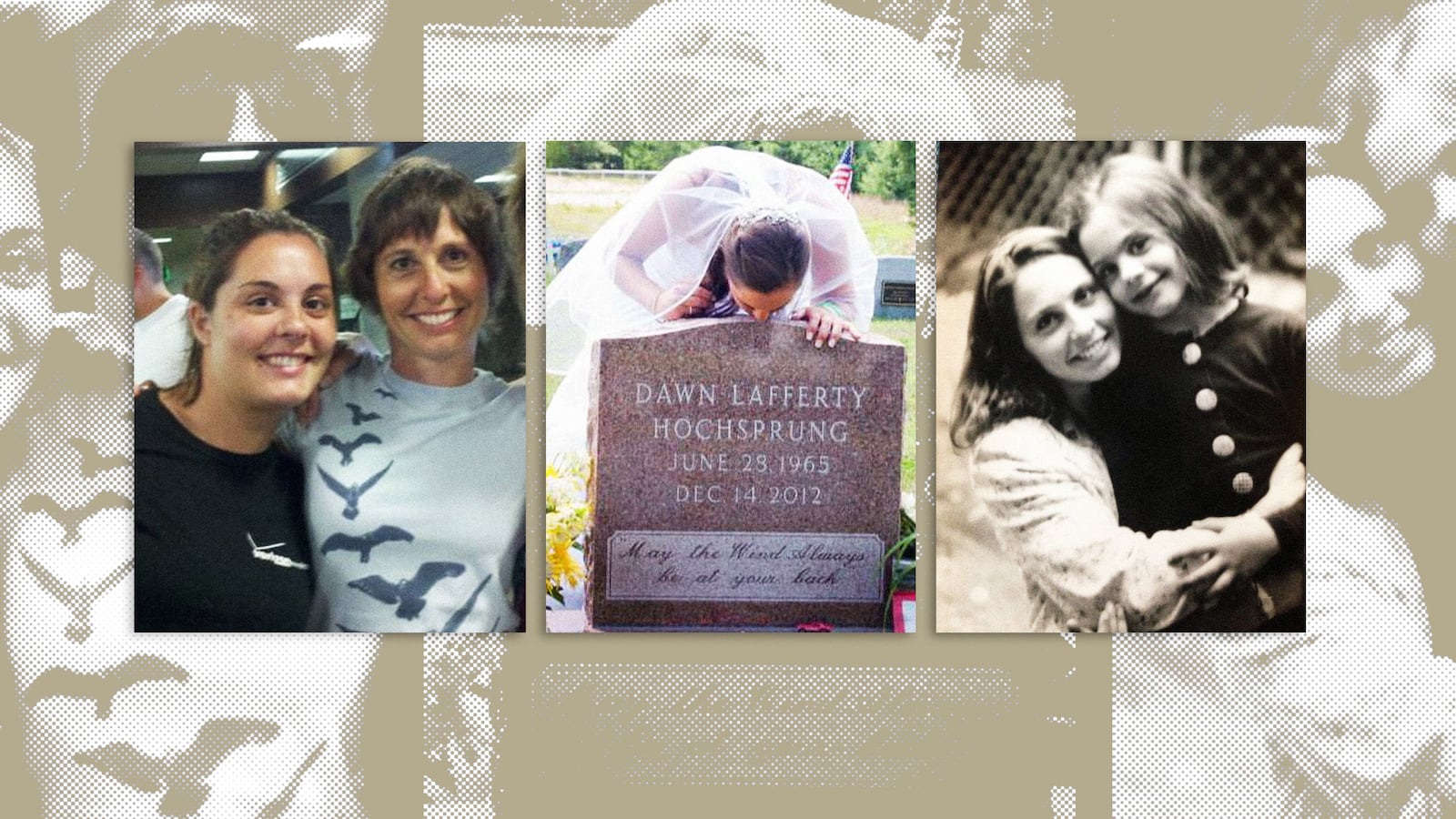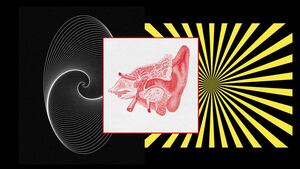A decade after my mother, Dawn Lafferty Hochsprung, was killed trying to protect elementary school students in the Sandy Hook School mass shooting, I am in the middle of yet another crisis brought on by poor policy: crowdfunding to pay for my cancer treatment.
In late March, I was diagnosed with Stage II lymphoma, a primary orbital tumor, along with significant sized pre-cancer masses in two of my lymph nodes. Until my diagnosis, I wouldn’t have understood what most of that last sentence meant. Now I know. It means that without aggressive treatment, I may not live to see my 38th birthday.
This diagnosis came as a shock to me. I had been aware of a small spot behind my left eye since 2014, but for nine years I’d been going to the eye doctor regularly to have the spot measured. It was always the same. We thought it was scar tissue. That changed last December. Fourteen weeks later, after many tests, I had a cancer diagnosis.
My family has already lived through the trauma of my mom being murdered in a mass shooting. I dreaded telling my five siblings that I may die early, too. I just couldn’t make the phone calls—I ended up sending them a text message, because the words were just too hard to speak.
Before I knew it, I was on the phone with doctors, pharmacies, the insurance company, and health advocates trying to figure out what was going to be covered by insurance and what wasn’t. After many appeals and talks with medical review boards, my health team told me that their “conservative” estimate was $60,000 out of pocket but, more realistically, $100,000 would allow me to walk away with little to no medical debt.

Hearing those numbers made my head spin.
I thought I had great health insurance. But I was told that my chemotherapy is not covered, at all, by insurance.
This is because its primary function is to treat stage zero (pre-cancerous) masses. Even though I was told that it is not if these masses turn to cancer, it is when and how quickly—the chemotherapy pills that could save my life are not covered by insurance.
I’m expected to be on a treatment plan of radioactive iodine and chemotherapy for at least the next 12 months. And the pills are about $8,000 per round. This does not include the copays, deductibles, and non-medical expenses that my family is facing. I am on a low iodine diet, which has skyrocketed my grocery bill. I am mandated to use biohazard precautions (one time use for toothbrushes, linens, kitchenware, and more) because of the nuclear medicine that is in my body.
I’ve spent the last decade fighting for stronger gun laws and working to hold the NRA and its allies accountable. That work is all I’ve wanted to do after my mom was killed, and it pays the bills, but it doesn’t come close to what I need to afford my medical expenses.
Some may think I don’t need to work after seeing headlines about the more than $1 billion that Alex Jones was ordered to pay Sandy Hook families for defaming them with despicable lies. But I haven’t seen a cent of that money and likely won’t for years, if ever.
So, in spite of having built a public profile through a decade of advocacy, my options to pay for cancer treatment are slim.

I have no issue asking people to donate to gun violence prevention work, but it’s a different feeling asking for money for yourself. To afford cancer treatment, I did what many Americans in my position do. I started a GoFundMe to crowdsource funding for my lifesaving medical care.
That is the sad reality of health care in America, where even those fortunate enough to have good coverage get stuck with “out of network” or uncovered medications resulting in medical bills that will take a lifetime to pay off. It is a disgusting fact that insurance companies, not doctors, get to decide what is considered life-saving care.
Lucky for me, I am nearing my crowdfunding goal. But I know that if I survive this without a mountain of debt, it will only be because of my mother, Dawn Lafferty Hochsprung. My mom died a hero. She was barely over five feet tall, and yet, when a gunman entered Sandy Hook Elementary, where she was principal, she charged at him. Now, a decade after her death, she may save another life—mine. The vast majority of donations I’ve received are from people who want to honor her.
I never thought there would be “good” that came from my mother’s murder. But the simple fact is, if she was not murdered, I would not have the money to survive.
But your mom shouldn’t have to be murdered in a horrific and high-profile mass shooting to be able to fundraise the money you need to save your life.
I’m now living at the crossroads of two uniquely American crises: a decade ago, my life was forever changed by gun violence. Now, it’s been changed again by a health-care system that allows insurance companies to put shareholders ahead of my survival. We all deserve better, on both fronts.
Here is the link to Erica’s GoFundMe, which includes medical and treatment updates.









